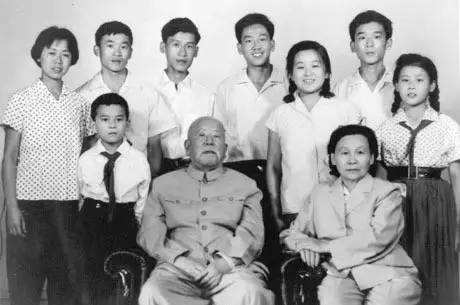Xie Juezai was born in Ningxiang of Hunan Province.
He was best known for his role as Minister of Civil Affairs from 1949 to 1959, and the President of the Supreme People's Court from 1959 to 1965.
His son Xie Yaxu says his father always saw himself as a servant working for the country.
As a result, he says his father turned down requests from relatives who wanted his help in getting jobs in the Chinese capital.
"My father always says 'I'm an official, but an official working for the country.' 'I get up very early and go to bed very late. I'm serving for the public. Do not ask me for help if you want to be an official. If you do it, I will quit and be a peasant in our hometown.' He never taught us to grow up with the aim of being an official. Instead, he encouraged us to learn some skills and make contributions to the society."
At the age of 50, Xie took part in the Long March, a military maneuver undertaken by the Red Army in 1930s.
Together with other officials and soldiers, he conquered hunger and diseases to get through the bitter struggles of the expedition.
Xie Yaxu says one of the things he learned from his father is to always be strict with himself and complete whatever task he has before him.
"At one Sunday night, we had the chance to watch a film. But my sister didn't let me go because I hadn't finished my homework. My father said, 'as you are not done with your homework, all of you cannot go to the cinema'. I was only a grade two primary school student at that time. I felt sad and such things never happened again since then."

Xie wrote over a hundred letters during his lifetime, including correspondences with his family after being deployed in government.
The letters have now been passed on to the third generation.
Xie's grandson Xie Yi says he is inspired by the positive energy from the letters, and that he's going to use it to influence others around him.
"I think the spirit reflected in these home letters is still applicable to modern society. For example, it tells us that young people should study hard. What we should do is to pass such positive energy on to future generations. My father is spending large amount of time and energy in film documentaries based on the historical materials of our ancestors."
Professor Wang Jie with National Academy of Governance says the way officials uphold themselves does not only affect their families, but also the Party, government and society as a whole.
"Some leading officials have committed crimes. One of the reasons is that they paid little attention to the role of family culture. They tolerated their family members such as wives and children to commit corruption and to be extravagant. Today, every official should be responsible for his family and should learn positive energy from traditional culture."
Xie Juezai also served as president of China University of Political Science and Law.
He was regarded as one of the founders of China's judicial system.
For CRI, I'm Li Honglin.












